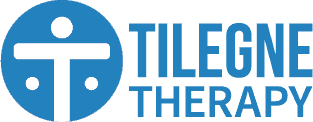A registered music therapist (RMT) is an allied health profession conducted by a university trained postgraduate who has a Masters in Music Therapy and registration with the Australian Music Therapy Association.
Our music therapist draws on clinical research and uses music-based interventions to address social, psychological, emotional and physical needs within a therapeutic framework. Our music therapist works on health care goals within a multidisciplinary professional team, hence it differs from musical entertainment or music education.
The Australian Music Therapy Association (AMTA) defines music therapy as a research-based practice and profession in which music is used to actively support people as they strive to improve their health, functioning and wellbeing. Music therapy is the intentional use of music by a university-trained professional who is registered with the Australian Music Therapy Association Inc. Registered music therapists draw on an extensive body of research and are bound by a code of ethics that informs their practice.
Music therapists incorporate a range of music-making methods within and through a therapeutic relationship. They are employed in a variety of sectors including health, community, aged care, disability, early childhood, and private practice. Music therapy is different from music education and entertainment as it focuses on health, functioning and wellbeing.
Music therapists are committed to supporting people of any age and ability regardless of musical skill, culture or background."
At Tilegne Therapy, music connects our community. Our clients get involved in music therapy through listening, playing instruments, improvising, dancing, singing, joint sessions with other team members such as our occupational therapist working on gross motor skills and many other myriad ways. Our clients appreciate our family-centred and strength-based approach of developing and exploring social communication, developing cognitive and physical skills, accessing emotional responses, vocalising, singing, body moving, and using musical instruments in structured and improvisational music-making.

Psychologists believe that music therapy improves the quality of life (Scott, 2018). From pain to personal loss, attentional disorders to relationship issues, music therapy is non-invasive method that suits all. Music therapy motivates kids of all ages and is an excellent intervention for managing autism, childhood depression, impulse control disorders, disability-related issues and attention-related disorders. Music stimulates sensory awareness in children. They learn to communicate, express, and understand through listening and playing music.
Some areas where children can benefit from music therapy are :
The Australian Music Therapy Association has produced a range of resources explaining how music therapy can help with different populations. This very brief video explains a bit about the role of music therapy for kids with disabilities. Episode 2 of the RMTs Change Lives Series “Jackson’s Story” discusses Music Therapy with Children with Disabilities
DR GRACE THOMPSON (RMT)
This video explains how sensory integration, emotional regulation, enjoyment, and the training to become a Registered Music Therapist play into music therapy for kids with disabilities.

Teens and adults who may need a boost in confidence, suffer from poor mental health, depression, eating disorders, Post-traumatic stress disorder( PTSD), Personality Disorders and other chronic illness (e.g. cancer, stroke, spinal cord injury, neurodegenerative disease) would benefit from music therapy. At Tilegne Therapy, your music therapist would use music as a means of expression and emotional regulation to help address issues that they may not be able to address using words or verbal communication.
Research has shown that music therapy can improve mental health and wellbeing. It can help:
As seniors approach old age which comes with many age-related issues such as changes in their family structure, level of health and social circumstances, we may find that the senior population are in need of emotional security and well-being. Music Therapy can help in these areas including physical rehabilitation and movement facilitation, an increase in people’s motivation, emotional support for clients and their loved ones, and a creative outlet to express feelings and emotions. Music therapy can stimulate cognitive function, learn new skills, activates long and short-term memory through musical association, reality orientation and physical skills through rhythm and movement.
Types of elderly conditions that Music Therapists work with:
Professional Music Therapists


Tilegne Therapy is a multidisciplinary clinic that offers Speech, OT, Music Therapy and dietetics. We aim to offer a service where our therapists can work together in order to support the goals of each patient.
At Tilegne Therapy, our Music Therapists are skilled to help with:
Because everyone’s healthcare goals are different and our music therapists tailor their therapy to the individual, each therapy session would look different for everyone.
Sessions activities may involve:

Music Therapist

We know our clients deserve the best treatment approach, and it is this passion that drives us to regularly update our clinical skills and participate in ongoing professional development programs. Our Occupational Therapists hold full registrations with their professional associations and keep updated with the latest research in evidence-based practice in order to offer the most effective intervention for your needs.
We spend time building rapport and understanding the uniqueness of each client, in order to deliver our client-centered holistic Occupational Therapy programs effectively. We know no two clients having the same “diagnosis” are ever the same, therefore we collaborate with the client for achievable goals of what they want to do, have to do, and need to do. Tilegne Occupational Therapy being a multidisciplinary practice can also offer a coordinated service across different professionals while being under the same therapy family.
We know that every client is a unique individual despite having the same “diagnosis.” We personalise our therapy programs according to the Person-Environment-Occupation Performance (PEOP) model. Our sessions are fun, efficient, and outcomes-driven, according to the needs of each client, taking into account their intrinsic factors and extrinsic factors to assess their occupation and performance. Our customised Occupational Therapy programs adhere to research-based practice, and therapy goals are targeted using the SMART framework.


We offer a range of occupational therapy options such as Saturday appointments, school-based, childcare, or Telehealth sessions. We also assist in understanding the range of funding options that may be available for your child. We are registered with Medicare, NDIS, and private health insurers for suitable clients.
Waiting times are stressful and clients’ learning potential could be stifled if intervention is delayed. We also believe that neuroplasticity happens at any age, and progress can be achieved with the right team, right motivation and effort and effective therapy programs. With our large team of experienced therapists, we can offer sessions with minimal wait times. Let us help you develop your potential in life.
Our mobile therapists are able to visit your home or through telehealth.

Tilegne Therapy acknowledges the traditional custodians of the land on which we work, learn, and live. We pay our respects to elders, past, present, and emerging.
We’re here to help!
Our mobile therapists are able to visit your home.
Tilegne Therapy
Copyright © 2023. All rights reserved.
